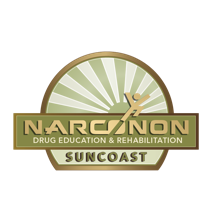A Decade With Nearly a Half-Million Drug Overdoses Comes To An End What’s Next?

I’m curious to see how this decade will be remembered in our history books. Will it be the decade that the country was delivered a sobering wake-up call when it comes to the opioid epidemic currently sweeping the country, the years in which we finally started laying the down the blueprint for handling addiction with the care and attention it needs? Or will it only be the beginning of something far more terrible and tragic? Nearly half a million Americans have lost their lives since 2010 to overdose. What started by an overabundance and reliance on painkillers for pain management evolved into a new heroin epidemic, one in which evolved into an even more terrible force named fentanyl. Our country’s response seems to be growing support for drug replacement therapy, with a newer and shinier product in the name of buprenorphine making the rounds and joining methadone. More on that in a minute.
How did we get here? How did heroin make a terrifying come back only to be replaced by something even more terrible and terrifying in fentanyl? How did we not learn our lesson with methadone, and are still attempting to handle addiction by using drugs to free people from drug abuse? Why are we still enforcing drug laws that have only been proven to escalate the problem? These are burning questions that need to be addressed if we are ever going to find a workable solution to our country’s most glaring problem, addiction. Everyone seems to have an agenda-driven opinion when it comes to how best to handle the opioid epidemic, but I rarely see any suggestions that involve more long-term treatment programs that completely handle a person’s drug addiction through real rehabilitation. Why?
I have my opinions on that, and most of them involve money and ease. It’s a lot easier and cost-efficient to label an addict with an incurable disease, send them to rehabilitate their lives in less than a month, give them a drug to either block effects or curb cravings or both, while also giving drug manufacturers replacement income while maintaining repeat business. The kicker? Addicts who choose this route will either need detox and treatment to come off these drugs, commit to using them for the rest of their lives or simply go back to using their original drug of choice to avoid painful withdrawal symptoms. This isn’t just a flawed system, it’s a completely broken one. It’s not going to reduce the opioid epidemic; it’s going to make it more prominent. It’s a revolving door that keeps even the addicts trying to better their lives hooked on drugs.
Another flaw has been our criminal justice system, and that includes court-ordered rehabs that lack resources and use the same flawed and dated techniques in handling a person’s addiction. If we want to start getting ahead of this problem instead of falling further behind, we need to start finding a better solution for our addicts. I have no doubt there will be some who read this who are advocates of some of our current approaches, such as drug replacements or even psych medications. My point is that whatever we are doing collectively as a country to solve this problem isn’t providing a solution that is making things better. The epidemic is growing, and it is time for a change.
It is my firm belief that solution lies within longer-term treatment centers that focus solely on helping a person move past their drug addiction, and not in an ideology that takes the easy way out while doing nothing to address the real issue. Addiction, particularly opiate abuse, isn’t something that can’t be overcome with the right attention to detail. If you or someone you know is seeking help, please reach out.
Justin P—Narconon Suncoast Graduate


